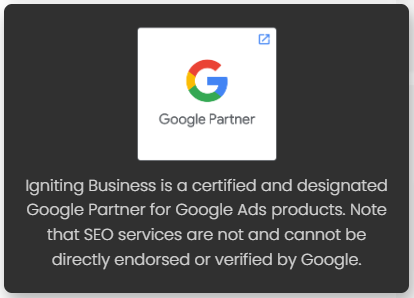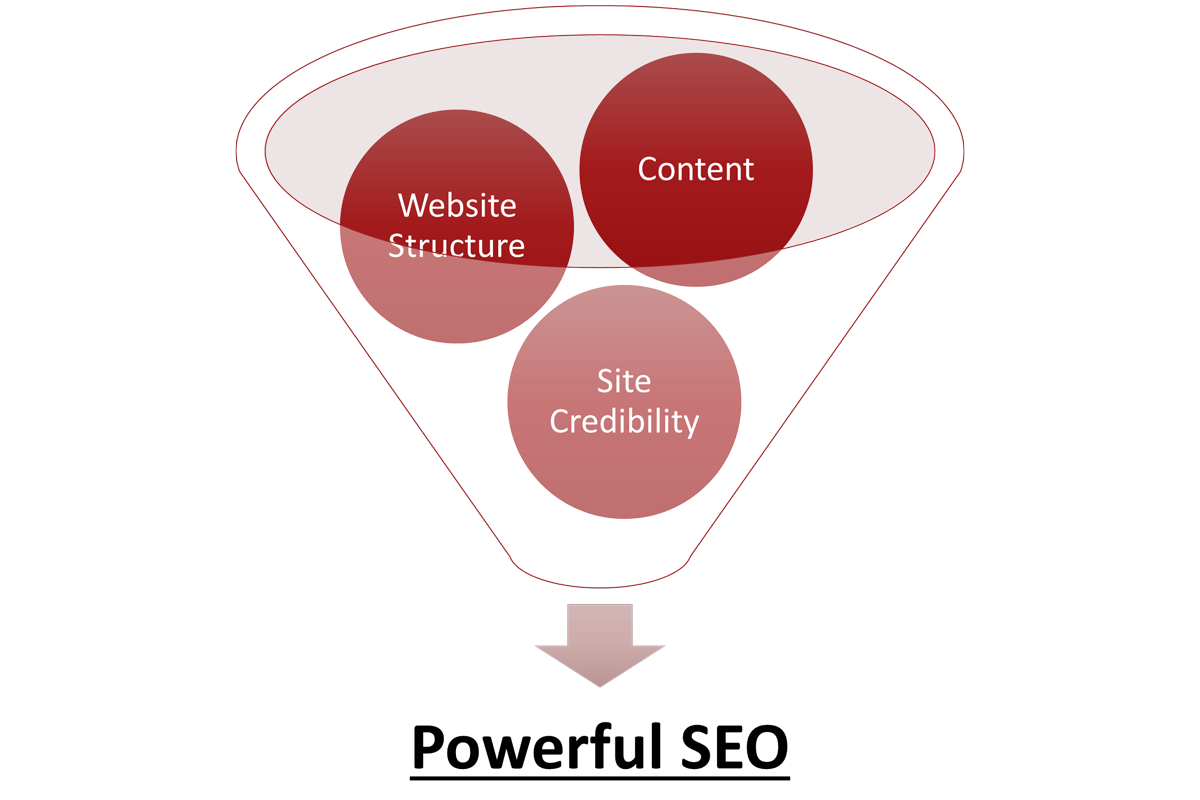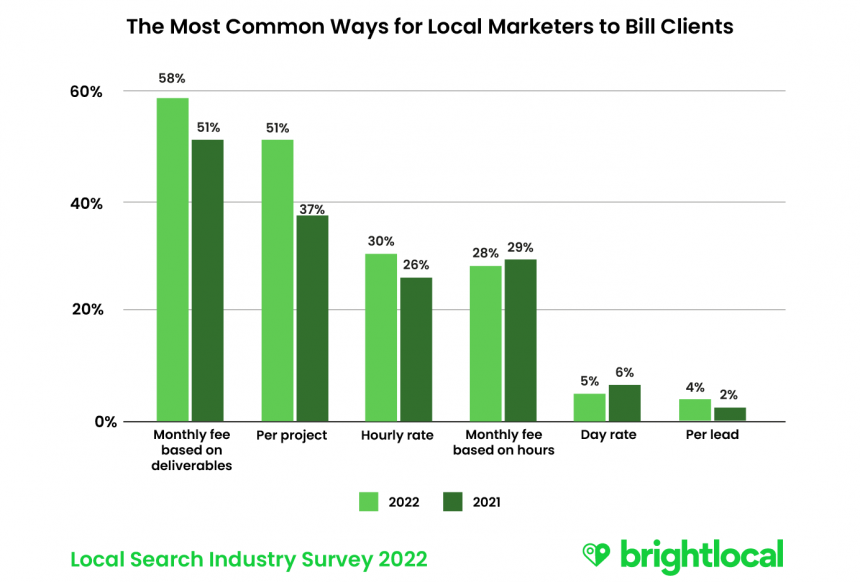What to Look for When Hiring an SEO Company
If you are considering hiring an SEO (Search Engine Optimization) company, we urge you to thoroughly understand these factors to consider before you sign on the dotted line.
In full disclosure, Igniting Business does offer SEO Services, so there is certainly a level of bias and soapboxing contained within this article. However, our experience and insights come from three core aspects:
- My team and I have directly performed Search Engine Optimization (SEO) projects for over a decade with clients across the US.
- As a side effect of the above, we have also seen hundreds of SEO companies’ work firsthand (as well as marketing/web design agencies who claim they “do SEO”). These aftermath looks at competitors’ SEO tactics reveal both where they exceled and where they fell short.
- Additionally, both my experience running Igniting Business as well as other companies I’ve owned, operated, or consulted have shown me the importance of finding a trustworthy SEO vendor.

Hopefully, these tips for choosing an SEO company will help you select an honest and high-performing SEO company that fits your needs. Note that in the sections below we include a due diligence question to ask your SEO company or you can skip to the end which contains a consolidated list.
Table of Contents
- SEO, Digital Marketing, and Web Design Are Not Synonymous
- Transparency of Initiatives – Getting Rid of the Magic Curtain
- Types of SEO Initiatives
- Scope of Tools
- Willing to Work with Your In-House Resources
- SEO Costs and Contract Types
- Evaluating SEO Experience
- Performance Metrics
- Questions to Ask SEO Companies
- Sign Up for More SEO Tips and Rants
SEO, Digital Marketing, and Web Design Are Not Synonymous
First, SEO does not equal digital marketing or web design. SEO is a separate discipline which specifically focuses on increasing your visibility online and driving relevant traffic via organic search. Many web designers, who can build incredibly beautiful websites, claim to “do SEO” on the websites they build. When in reality, they simply install and configure an SEO plugin, maybe optimize a few page titles and meta descriptions, and call it good.
Installing and configuring a couple SEO plugins is not Search Engine Optimization (SEO).
Similarly, marketing companies like to appear as a jack-of-all-trades, especially those that once focused on traditional advertising methods like radio, TV, paid advertising, etc. As such, they’ll throw in SEO into the mix while their loyalty still lies with traditional advertising.
That said, both web design companies and marketing companies can provide SEO services if they truly have developed and prioritize that expertise, which likely means staff dedicated to that discipline.
Our warning is don’t assume your web designer or marketing agency knows what they’re doing when it comes to SEO.
Question to Ask: What percentage of your business is SEO work?
Transparency of Initiatives – Getting Rid of the Magic Curtain
Numerous companies have been burned by negative experiences with so-called SEO companies. I’ve been told countless stories where the business owner wrote a check to their SEO company but had no idea what the SEO agency was doing behind-the-scenes.
Many of those owners were diligent and did ask questions about what their SEO company was accomplishing. To which they hear some version of the reply, “…our SEO tactics are proprietary…” and received only vague answers designed to shut down the questions.
Let me be blunt, there is nothing proprietary about SEO. No individual person or company has the magic formula for winning within Google (partially because the algorithms and search features are always changing!). Plus, there is no “one way” to succeed with SEO. There are certainly tried and true fundamentals that will play a part in your SEO success.
However, if the SEO company is acting like they have a “Magic Curtain” where you cannot peek behind to know what’s going on, but they assure you it’s working, run away, fast!
Question to Ask: Do you disclose what SEO initiatives you work on each month?
Designated Google Partners for SEO (No Such Thing!)
Google has a program where they designated “Google Partners.” Google Partners is 100% created for their Google Ads platform. I have seen quite a few SEO companies try to say they have special knowledge or preference due to their status as a “Google Partner.” Many dishonest SEO companies will list this designation within their SEO proposals or directly on web pages discussing SEO. This is exceptionally misleading.
In fact, Google states, “[Google Partners] cannot show the Partner or the Premier Partner badge on any materials, such as websites, that advertise Search Engine Optimization (SEO) services without a prominent notice saying such SEO services are not verified or endorsed by Google.” The following is an example from our own website of how this disclaimer should be placed to comply.

Types of SEO Initiatives
There are literally thousands of different types of SEO tactics (what we call SEO initiatives) that can have an impact on your overall SEO strategies. Be sure to get a tangible idea of the types of SEO tactics your potential SEO company offers.
In general, most SEO companies refer to the strategies as “onsite/on-page” (items done on your website) and “offsite” (items done off your website). This is probably the most common terminology, but we like to use a different approach where we talk about categories of SEO tactics in terms of Website Structure, Content, and Site Credibility. Each of those overarching categories can have hundreds of different initiatives. The following are some examples of what types of SEO initiatives are included within each category.
Website Structure
Website Structure has to do with how your website is physically built and includes the technical details of the site. We lump items like schema/structured data, URL structure, core web vitals and page speed, meta data (e.g. headings, titles, social cards, etc.), alt tags, sitemaps, accessibility, UX, resolving 40x/50x errors, etc.
Quality Content
This all comes down to having quality content that is relevant for what users are searching for (solves their problem), contains unique perspective, and is up-to-date. The content strategy is absolutely huge and arguably the biggest part of SEO. This impacts both content on your website and content you use off of your website.
Site Credibility
Site Credibility is a part of SEO that trips people up. Even if you have great website structure and content, you still need to foster what we call “site credibility.” This includes factors like your Google Business Profile (GBP), consistency of data across business directory listings, incoming links/backlinks, review collection, authority of your authors/publishers, social media engagement signals, etc. In essence, Site credibility boils down into what others are saying about your business.
Holistic SEO Approach
We’ve used the following illustration for over a decade, and every time a new ranking factor/signal is discovered, it seems to fit nicely into this illustration.

A successful SEO strategy must have all three parts of SEO, otherwise it will fall short.
Question to Ask: What types of onsite and offsite SEO initiatives do you complete for your clients?
Scope of Tools
Because there are literally thousands of SEO tasks that may need to be worked on, SEO companies typically have a very robust toolset of SEO tools that they use. This is a large part of white SEO rates are as high as they are.
Ask your potential SEO company what tools they use. If they only list a few (e.g. Yoast, Google Analytics, Google Search Console), you should be worried. Or if they state, oh they do all that manually, again, you should be worried.
Question to Ask: What tools and software packages do you use for SEO?
Willing to Work with Your In-House Resources
Perhaps the SEO company tells you the long list of all that they can and will do for you. But then you suggest that you all can write the blog posts in-house. If they freak out or claim that won’t be useful, you might want to think again whether they are the right fit.
With SEO, there is always more to do than time and budget allows. Thus, if your company truly has certain talents in-house (e.g. a prolific writer who could create the first draft of awesome blog posts or a budding photographer), a good SEO company could and should leverage that talent. When an SEO company properly leverages in-house talents at your company, they will have more time to handle other difficult and technical tasks.
See how open the potential SEO provider is to leverage your in-house talents. Their response and flexibility may give you insight into what it will be like working with them over time.
Question to Ask: We have a talent for X (e.g. writing blogs, capturing photos, video production, etc.) at our company, how can you leverage that for SEO?
SEO Costs and Contract Types
Naturally, both the overall cost and contract options should impact your decision when picking an SEO company.
How Much Does SEO Cost
The cost of SEO packages varies dramatically. However, this number goes up greatly depending on the amount of work needed and how many locations are being targeted.
According to BrightLocal’s Local Search Industry Survey which included SEO pricing (last conducted in 2022), the average local SEO pricing was $1,557/month, with the average hourly rate charged by local marketers at $132/hour.
Do your homework on what the SEO company will be doing and weight that against the conversions and key metrics. That said, I would be skeptical of an SEO service under $500/month.
Question to Ask: How much do your SEO packages cost and what do they include?
Contract Types
Some SEO companies will charge a one-time project fee to get you to a certain level/accomplish a laundry list of SEO items they identified via an SEO audit. However, we don’t believe this does clients justice since SEO is not one-and-done. Google is constantly changing the game by implementing tweaks to their algorithms. Additionally, your competitors are also working on improving their web presence.
As such, we are definitely in favor of ongoing SEO that has a smaller monthly fee vs. an excessively large, one-time fee. This allows constant prioritization of what strategies will get the client the best bang for their buck.
That said, even the ongoing monthly projects have contracts that vary in structure. We’ve seen some SEO companies lock clients into two-year contracts that renew for two years at a time.
At Igniting Business, we charge our SEO packages month-to-month; however, we make it blatantly clear that SEO is a marathon, not a sprint. Thus, clients should not expect to see results until at least 6 months have elapsed, and even then, it is going to be an ongoing initiative.
Many SEO companies will require 3-month, 6-month or 12-month contracts. We understand why they go this route instead of month-to-month due to the inherent lag effect of how long SEO takes to start working and fear that their clients will leave them before they’ve had a solid chance to make progress. Bottomline, you need to make sure you do not sign an SEO contract that will leave your business in a bad position should SEO take longer to start working, or if you signed a contract with a dud.
Question to Ask: What are the contract terms (length of contract, how do we cancel if we aren’t happy, etc.)?
Evaluating SEO Experience
Evaluating the SEO experience level of a potential SEO vendor is difficult. Anyone can say they are an SEO expert. Just as a reminder, web designers and marketers do not equal SEO’s (Search Engine Optimizers). As such, you will need to do some digging, even if the company claims they do SEO.
Differences Between Local SEO, National/International SEO, and E-Commerce SEO
As one nuance to keep in mind, there are multiple sub-disciplines within SEO. “Local SEO” is geared towards companies that are trying to rank in their local geographic area. For example, a plumber, pet grooming facility, and accounting firm all would likely focus on local SEO.
Whereas a company selling their services or products nationally, or even internationally, has a much higher level of competition that goes beyond typical local SEO tactics.
Additionally, as soon as you start selling products online via e-commerce, that arguably also requires a separate set of expertise.
As such, ask the SEO company what their experience is in your specific type of SEO need (Local SEO, National/International, E-commerce, etc.). Ask for examples of their work and tangible strategies that apply to your needs.
Question to Ask: How much of your work is Local SEO vs. national/international vs. e-commerce?
Reviews and References for SEO Companies
No matter how much the SEO agency brags about their own abilities, what actual customers say about their quality of SEO services matters much more. Do a deep dive into online reviews about their company. Read both the positive reviews, but especially the negative reviews to understand how they perform.
Taking it up a notch, ask to talk to a couple of their customers. If an SEO company has truly transformed the life of their customer in a big way, you can definitely bet that their customers would be willing to brag about them.
Question to Ask: Please provide 2-3 client references who we can call to talk to about your SEO services.
Performance Metrics
Before you commit to working with an SEO company, you need to find out how they determine and track success. There are three common tracking elements that SEO companies can provide. If you can get all three, that is a solid sign!
Rankings
By default, SEO companies must track how you rank in search engines for your target keywords/phrases. This is table stakes. Without tracking your target keywords in the targeted areas, how do you know if the SEO is actually making progress?
Traffic
Improved rankings are great, but what does that mean in terms of driving valuable traffic to your online presence? That’s where tracking actual traffic numbers, demographics, what pages are being viewed, etc. comes into play. Traffic tracking is another essential element for evaluating SEO success.
Question to Ask: What type of data will you provide for tracking success and how often will we receive those reports?
Conversions (and Sales Numbers if Possible!)
The ultimate tracking metric of success is when you can track actual conversions (e.g. website form submissions, phone calls, sales, etc.) occurring along with which marketing avenue drove the conversion. SEO companies do not always provide this metric since it can be expensive to implement accurately and requires significant buy-in/commitment from the business owner and their team.
However, this is the most valuable metric of all since it can show exactly how many customers came from SEO vs. social media, ad campaigns, etc.
Additionally, some robust conversion tracking systems, like WhatConverts (which is what we use at Igniting Business) will be able to also allow setting quotable vs. non quotable leads and integrate with your CRM to assign values to the leads as well. We really love WhatConverts since it can track phone calls, website form submissions, chats, calendar appointment bookings, e-commerce transactions, and more.
Question to Ask: What conversions do you track?
Questions to Ask SEO Companies
In light of the above considerations, here’s the consolidated quick list of questions to ask your potential SEO agency which will serve to start the exploration discussion:
- What percentage of your business is SEO work?
- Do you disclose what SEO initiatives you work on each month?
- What types of onsite and offsite SEO initiatives do you complete for your clients?
- What tools and software packages do you use for SEO?
- We have a talent for X (e.g. writing blogs, capturing photos, video production, etc.) at our company, how can you leverage that for SEO?
- How much do your SEO packages cost and what do they include?
- What are the contract terms (length of contract, how do we cancel if we aren’t happy, etc.)?
- How much of your work is Local SEO vs. national/international vs. e-commerce?
- Please provide 2-3 client references who we can call to talk to about your SEO services.
- What type of data will you provide for tracking success and how often will we receive those reports?
- What conversions do you track?
Sign Up for More SEO Tips and Rants
If you are interested in receiving SEO, online marketing, and web design tips, consider signing up for our free monthly newsletter. However, be warned, you may see an occasional rant like this article.
At no additional cost to you, we may receive a commission if you click on some of the links on this website and make a purchase.
About the author
Ben Seidel is the CEO and Founder of Igniting Business. Ben has been serving hundreds of small businesses with web design and SEO services for over 15 years and covering digital marketing related topics since 2012.
Over the years, Ben has been recognized on a local and national level, including entrepreneurship awards from both the NFIB and NASE and being featured in publications such as CNBC Universal, Yahoo News, Intuit Small Business, CIO.com, Mizzou Magazine, and Fox Business.
